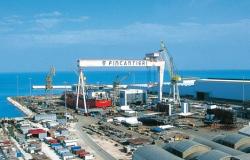President Macron’s sudden call for early elections has created a certain both stock and bond volatility in France, which will remain the center of attention. French government debt markets are very liquid and the environment is favorable, with investors keen to lock in higher rates before the ECB cuts them further. Caution on the euro in the short term, but no structural weakness is visible. They are the indications of Vincent MortierGroup Chief Investment Officer of Amundi, on the prospects for Europe and France after the European elections, which took place in a clearly improving economic context, with the main indicators increasingly pointing to an improvement in the second half of the year.
A DIFFERENT PICTURE FROM COUNTRY TO COUNTRY
The Amundi expert predicts Eurozone growth of 0.8% in 2024 and 1.2% in 2025, while rising employment confirms that companies retaining workforce in anticipation of a recovery. But there are notable differences from country to country and sector to sector: Germany is likely to be at the bottom while Spain is expected to fare better. A more widespread recovery is expected in 2025, supported by improvement in purchasing power and the easing of financial conditions. The early elections in France are part of this framework, from which Macron is trying to obtain a more stable internal policy.
FRENCH STOCKS MAY UNDERPERFORM SOON
If the far right were to win, the President will still preside over foreign, European and defense policy and stability is therefore expected in these areas. Macron is also a key figure for top appointments in the public sector. As for the implications for French markets and the euro, Mortier says the early elections have created some volatility, both in equity and fixed income markets, and the former may briefly underperform their European counterparts during this phase of uncertainty. Bond markets have already partially priced in France’s budget deterioration and government debt markets are very liquid.
GET PREVIEW NEWS FOR FREE
CAUTION ON THE EURO ONLY IN THE SHORT TERM
According to the Amundi expert we could witness a widening of French spreads compared to German Bunds. Markets will likely look at the results of the first round on June 30th and the second round on July 7th, and will be in a waiting phase, before rising or falling again, while volatility is expected to decrease as the political situation becomes clearer. On the euro, Mortier says he is cautious in the short term, but does not see structural weakness, even if volatility has increased and sentiment has turned negative, causing the single currency to fall.
FEW REASONS TO BE STRUCTURALLY NEGATIVE
Looking forward, the euro is trapped between high political uncertainty and short-term divergences between the Fed and the ECB, so the risk-reward ratio is unattractive for now, but excessive declines could open up opportunities. Structurally, the Amundi expert sees little reason to be negative on the euro, noting that unlike the political uncertainties of the past, peripheral European countries are stronger today. And the Fed also remains oriented towards rate cuts, once it is sure of the reduction in US inflation.
NO INSTABILITY IN THE EUROZONE IN VIEW
In conclusion, Mortier’s analysis underlines that the volatility is set to continue in a phase of electoral uncertainty, political uncertainty should not open the door to Eurozone instability. Also because French public debt has positive aspects: it is one of the most liquid markets in the area, while the context remains favorable for fixed income, with investors wishing to lock in higher interest rates before the ECB reduces rates further.






